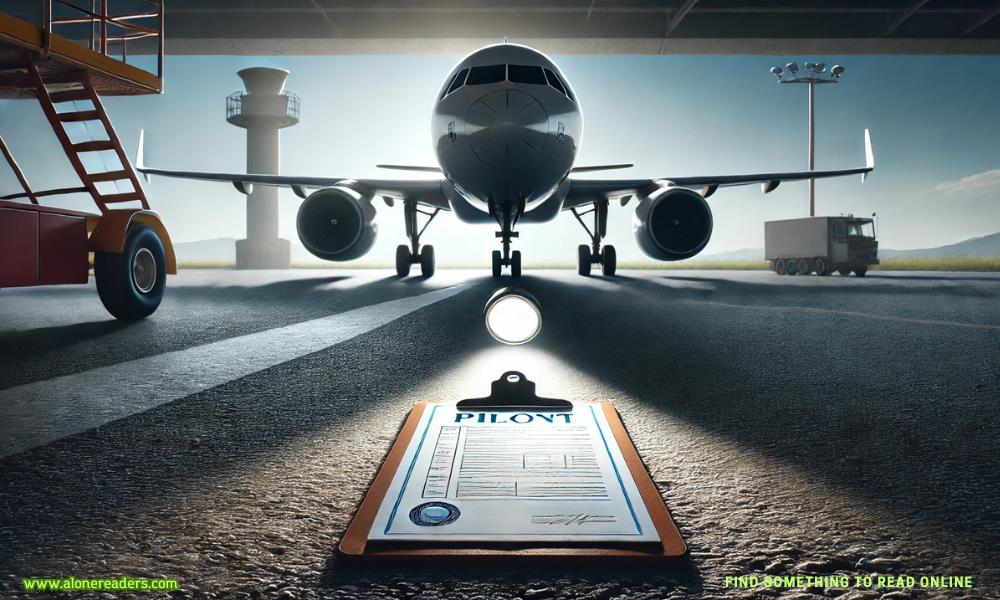
William Chandler, a respected figure in South Africa’s aviation industry, has been thrust into the spotlight following revelations that he held a fake pilot’s license. After two decades of flying for various airlines and earning the trust of colleagues and passengers alike, Chandler’s career has come to an abrupt halt as he resigns from his position amidst the scandal.
Chandler’s journey in aviation began over twenty years ago when he first took to the skies as a commercial pilot. His dedication and skill quickly earned him a reputation as a reliable and proficient aviator. Over the years, he flew for several prominent South African airlines, piloting both domestic and international flights. His commitment to safety and excellence made him a valued member of the aviation community, and he was often seen as a mentor to younger pilots entering the field.
However, behind the façade of a successful career, Chandler had been harboring a significant secret. Investigations revealed that the pilot’s license he held was, in fact, fraudulent. The discovery came to light during a routine audit by the South African Civil Aviation Authority (SACAA), which meticulously scrutinizes the credentials of aviation professionals to ensure the highest standards of safety and integrity are maintained within the industry.
The revelation that Chandler had been operating under a fake license for twenty years has sent shockwaves through the aviation sector. Questions have arisen about how such a lapse in verification occurred and how Chandler was able to sustain his career without detection for so long. Industry experts are now calling for stricter measures and more rigorous checks to prevent similar incidents in the future. The incident underscores the critical importance of thorough background checks and continuous monitoring of aviation licenses to maintain public trust and safety.
Chandler’s resignation marks the end of what was once a distinguished career. His departure has left many stakeholders in the aviation community grappling with the implications of the scandal. Airlines that employed him are now reviewing their internal processes to identify any potential oversights that may have allowed this situation to arise. There is a growing consensus that the incident highlights vulnerabilities within the current system of license verification and raises concerns about the potential for other fraudulent activities to go unnoticed.
For the families and passengers who trusted Chandler with their safety, the news has been both shocking and disheartening. Many have expressed their disappointment, feeling betrayed by someone they believed to be a competent and trustworthy pilot. The emotional toll on his colleagues is also significant, as they come to terms with the revelation that a respected member of their team was not who he appeared to be.
In response to the scandal, the SACAA has pledged to implement more stringent verification processes to prevent such incidents from occurring in the future. They have announced plans to collaborate with international aviation bodies to enhance the robustness of their license verification systems. Additionally, there is a push for increased transparency and accountability within the aviation industry to rebuild trust among the public and stakeholders.
The case of William Chandler serves as a stark reminder of the importance of integrity and honesty in professions where lives are at stake. It underscores the necessity for continuous vigilance and the implementation of comprehensive checks to ensure that only qualified and genuine professionals are entrusted with such critical responsibilities. The aviation industry, known for its stringent safety standards, must take this incident as a catalyst for reform to safeguard against future breaches of trust.
As the investigation continues, more details are expected to emerge about how Chandler obtained and maintained his fake license over the years. Speculation is rife about the potential accomplices and the possible motivations behind his actions. Whether it was a deliberate attempt to deceive or a lapse in judgment, the repercussions of his actions are far-reaching and serve as a cautionary tale for others in the field.
The aftermath of Chandler’s resignation has also sparked discussions about the support systems in place for professionals in high-stakes industries like aviation. The pressure to perform and the high expectations can sometimes lead individuals to make unethical choices. There is a growing dialogue about the need for better mental health support and ethical training to prevent such incidents from occurring.
In the broader context, this scandal has implications for the reputation of South Africa’s aviation sector on the global stage. International partners and passengers now scrutinize the country’s aviation standards more closely, emphasizing the need for swift and effective measures to restore confidence. The SACAA’s proactive response will be crucial in demonstrating the country’s commitment to upholding the highest standards of aviation safety and integrity.
For aspiring pilots and professionals within the industry, Chandler’s case serves as a powerful lesson on the consequences of unethical behavior. It reinforces the message that integrity should always take precedence over personal gain or ambition. The long-term impact of his actions not only affects his career but also casts a shadow over the decades of service he provided under false pretenses.
As the story unfolds, the focus will likely shift to the broader implications for policy and regulation within the aviation sector. Industry leaders are calling for comprehensive reviews of existing protocols and the introduction of new measures to enhance oversight and accountability. The goal is to create an environment where such breaches are swiftly identified and addressed, ensuring that the trust placed in aviation professionals remains unbroken.
In conclusion, the resignation of William Chandler, a seasoned South African pilot, after the discovery of his fake license is a significant event with wide-ranging repercussions. It highlights the critical need for robust verification processes, ethical integrity, and continuous oversight within the aviation industry. As the sector moves forward, lessons learned from this scandal will be instrumental in shaping a safer and more trustworthy aviation environment for all.